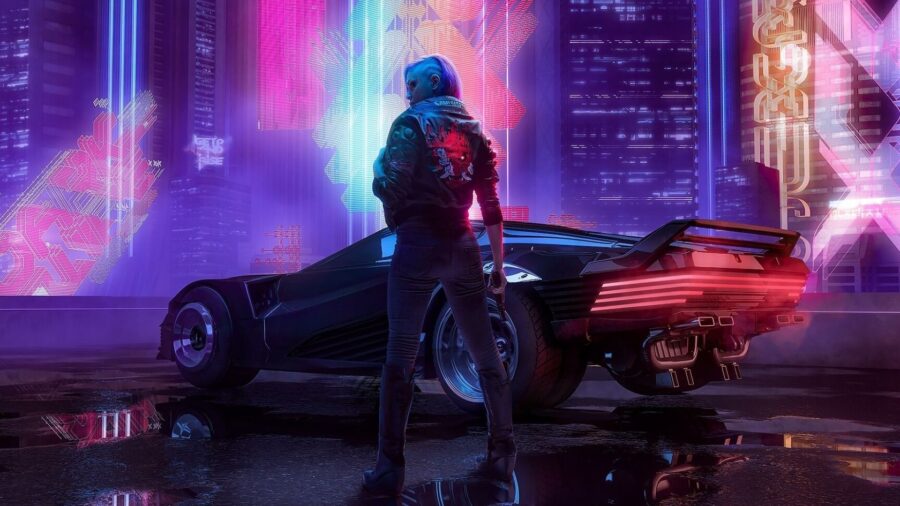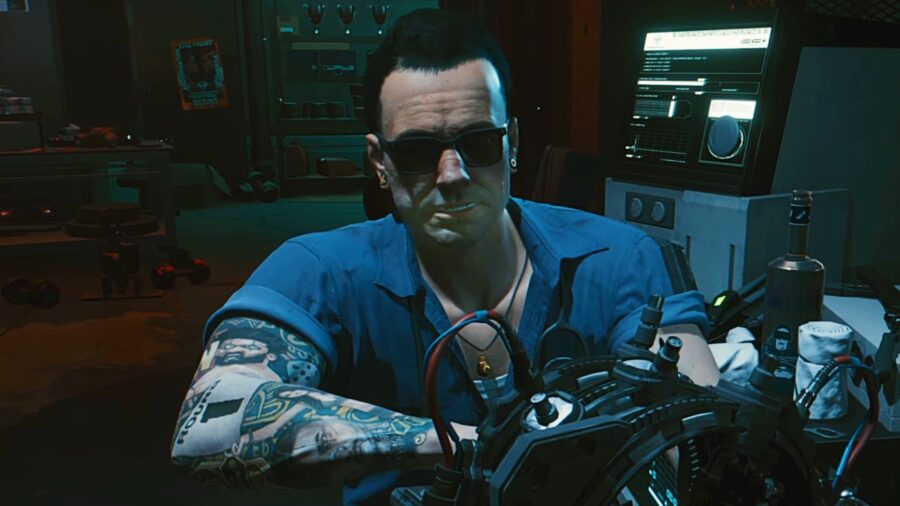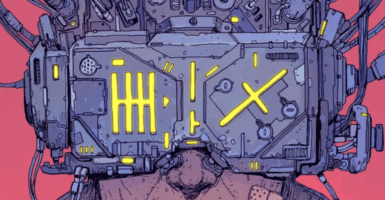Cyberpunk 2077 Resurrects Dead Actor With AI

It’s a sign that science fiction has become a little less fictitious and a little more part of our reality when we’re able to resurrect dead actors with artificial intelligence. According to Variety, Polish video game developer CD Projekt SA recently used AI to bring back to life the voice of deceased voice actor Milogost Reczek, who voiced Viktor Vektor in Cyberpunk 2077. The actor’s voice can be heard in Phantom Liberty, the recently released expansion that brings gamers back to Night City.
In a twist that sounds like a plot point ripped straight from one of their games, CD Projekt engaged in a high-tech séance of sorts by bringing back the voice of Reczek, who died in 2021.
Cyberpunk 2077 is bringing back the voice of Milgost Reczek, who played Viktor Vektor, but passed away in 2021 before the release of Phantom Liberty.
The video game company struggled with the decision to use AI to replicate the voice of Reczek but decided it would be better than hiring a new actor for the Cyberpunk 2077 expansion. They reached out to Reczek’s family for permission to create an AI simulacrum of the late actor and were met with warm support from Reczek’s loved ones.
Mikołaj Szwed, the CD Projekt localization director, hated the idea of replacing Reczek in the Cyberpunk 2077 expansion, claiming that Reczek was one of the best Polish voice talents and that his performance in the game was “stellar.”
The video game company struggled with the decision to use AI to replicate the voice of Reczek but decided it would be better than hiring a new actor for the Cyberpunk 2077 expansion.
To resurrect the actor’s voice for Cyberpunk 2077: Phantom Library, CD Projekt brought another voice actor in to speak the character’s lines. Then, the studio used Ukrainian voice-cloning software called Respeecher to transform the new actor’s voice into a resonant Reczek soundalike, all with the assistance and support of Reczek’s family.

We’re currently witnessing the birth of AI as a tool to assist art, and the potential of what this technology can do is limitless. The use of AI to replicate the voice of a deceased actor in Cyberpunk 2077: Phantom Library is a novel application of technology, and it opens up a broader discussion about AI’s role in the entertainment industry. The use of AI in the film and gaming industries has long been a subject of debate, with industry professionals torn between concerns about technology replacing human talent and the belief that AI can enhance the creative capabilities of Hollywood.
The issue of AI’s role in the industry extends beyond just CD Projekt and Cyberpunk 2077. The current strike between SAG-AFTRA and AMPTP has faced a standstill in negotiations, with neither party agreeing on using AI and how it will affect the industry and the people working in it.
CD Projekt’s pioneering use of AI to recreate Miłogost Reczek’s voice is not just an impressive technical feat but also a testament to their dedication to preserving the legacy of a beloved actor in the Cyberpunk 2077 universe.
For many actors, the advent of AI technology raises questions about autonomy and creative control. Tim Friedlander, the National Association of Voice Actors spokesperson, highlighted this at Comic-Con in July, stating that human voice actors can refuse lines or projects they disagree with. However, the use of a dead actor’s voice in Cyberpunk 2077: Phantom Library is just one instance that shows how AI can potentially strip actors of their autonomy over what their voices say.
CD Projekt SA’s pioneering use of AI to recreate Miłogost Reczek’s voice is not just an impressive technical feat but also a testament to their dedication to preserving the legacy of a beloved actor in the Cyberpunk 2077 universe. However, this decision ignites important conversations about the future of AI in entertainment, creative control, and the ethics surrounding the use of technology to simulate human voices. As technology continues to advance, these discussions will likely become more pertinent in the years to come.












